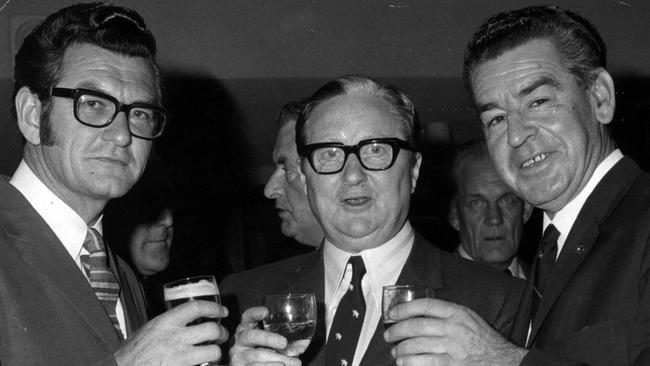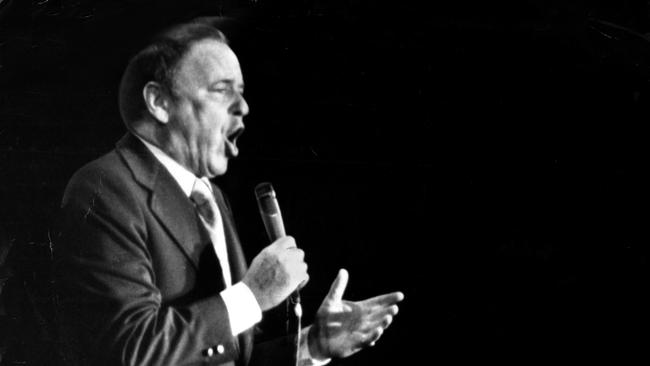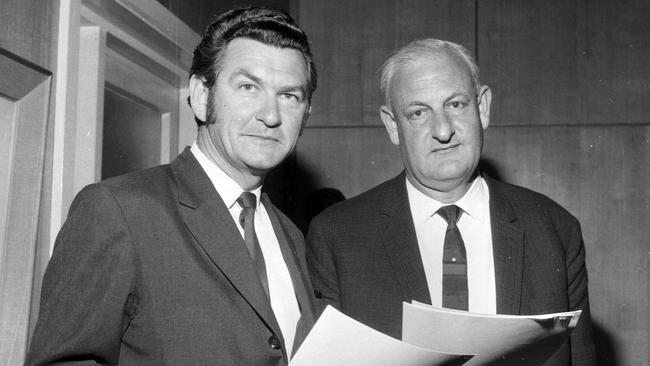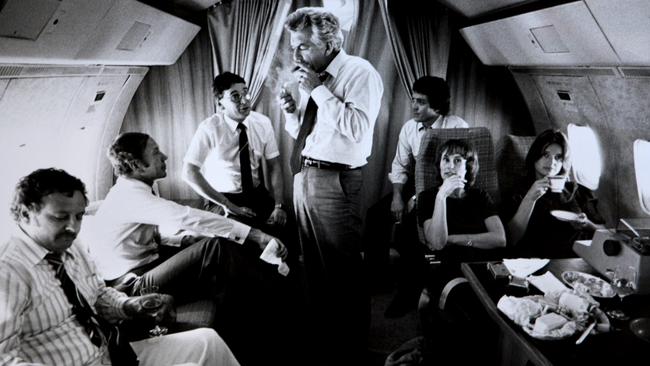Bob Hawke memorial: ‘Thanks, Bob. Thanks for everything’
As a journalist covering Bob Hawke during his days as a union leader, I got to witness a formidable hard worker clearly destined for greatness, writes Barry Donovan. This is the Bob I knew and will never forget.
The memorial service for Bob Hawke being held in Sydney on Friday got me thinking of my personal memories of the great man.
In the late 70s Hawke, then ACTU president was considering his future.
Most supporters wanted him to continue as an outstanding union advocate while some backers wanted him in Canberra.
At a Friday session at the John Curtin hotel in Carlton, Bob asked me privately what I thought about his options.
As a journalist, I’d covered his roles as an ACTU advocate and as president from 1970-79. I said: “Bob, you should now go as far as you think you can go”.
MORE FROM RENDEZVIEW: The two things Bob Hawke never lost faith in
He nodded and said: “OK”. We then went over to East Melbourne to see his ACTU personal assistant Jean Sinclair and he asked me to repeat what I’d told him.
The result was that Hawke won the Melbourne seat of Wills, became Prime Minister in 1983 — and had an excellent PA, this time in Canberra, in Jean.

Hawke, of course, was an astonishing combination of talents: Oxford graduate, ACTU advocate and president, down-to-earth, often in the pub, nationally respected and admired.
But it all began with the serious and demanding role of presenting the ACTU’s national wage case in the Conciliation and Arbitration Commission from 1958 to 1968.
For once, employers had a formidable opponent, one who was prepared to argue the workers’ case all day and half the night.
Commission president Sir Richard Kirby was impressed by Hawke and gave the major speech at Bob’s 50th birthday celebration in Sandringham. Following Sir Richard, I presented Bob with a sculpture of his head by journalist and artist Vincent Basile and said: “this is the head that the Liberal party is trying to claim”.
MORE FROM RENDEZVIEW: Hawke evokes nostalgia for a time when larrikins were celebrated
Hawke was undoubtedly at home in more informal locations, such as the John Curtin Hotel next to the ACTU office. But probably the best pub photograph involving Bob was taken at a hostelry in Sydney Rd, Brunswick.
Once owned by the Storemen and Packers ‘Union, it was renamed the R.J. Hawke Hotel. The pub opening shot had Hawke with Prime Minister Gough Whitlam, who didn’t drink beer, holding a yard of ale. Just another day in downtown Brunswick.

When you were a journalist covering the ACTU with Hawke was president, there were times you could find yourself almost participating in the news.
One of those was when US superstar Frank Sinatra was touring Australia and felt he was not being treated well by the local media, particularly female journalists.
At his Melbourne concert he let fly and, as reported by Rex Lopez in the Sun News-Pictorial the next morning, he called them “hookers”.
That morning I told Hawke that everyone, including ACTU members, was talking about Sinatra’s insult. A second Melbourne concert had been cancelled.
MORE FROM RENDEZVIEW: In remembering Bob Hawke, we should not forget Hazel
Hawke established that Frankie was at Melbourne airport and took action. As a Victorian committee member of the Australian Journalists’ Association, I volunteered to become involved and Bob and I, with a Press contingent, headed to the airport.
Hawke had called the airport controllers and suggested they stop Sinatra’s plane from leaving until he had discussed the “hooker” allegation with the singer.
But the message didn’t get through, and Sinatra was able to fly out to Sydney where his private jet was black-banned.

Bob was determined to get an apology and caught up with Sinatra at the Boulevard Hotel. After some negotiations, the American star eventually put out a statement of apology and, after being stuck for three days at the Boulevard, flew off to Hawaii.
With Hawke as ACTU president in the early 70s business contacts were made that foreshadowed the employer-union accord that was to be a feature of the Hawke government 10 years later.
Lionel Revelman and his family owned the Bourke’s retail store in Melbourne and saw the value of going into partnership with a body that then had 1.2 million blue-collar members.
After an initial sales and profit sharing boost, the customers dropped away, but the partnership forced other major retailers to arrange new sales deals.
RELATED: Bob Hawke’s life in photos
By chance, I bumped into Revelman late one day in Lygon Street and asked him how the ACTU deal would turn out. He said: “There are only two definite things in life — taxes and death.”
Lionel was on his way to play tennis with Bob that night. They had played one set, and Lionel was preparing to serve, when, to Bob’s shock, his ageing friend collapsed and died. It was a terrible event, one that stayed with Bob for the rest of his life.

In the 1983 Federal election, Hawke and the ALP campaigned on national economic consensus. When the first Hawke accord meeting in Canberra opened, the significant employers flocked to join up. Lionel Revelman would have been delighted.
It was a terrific experience to be close to Hawke through the ACTU days and from 1979 I worked as a consultant with both Hawke and John Cain.
But some other journalists might not have thanked me for one influence I had on Hawke. One Friday night in the John Curtin Hotel, I offered Bob a Cuban cigar. He took a couple of puffs and said: “That’s too strong.”
So the next Friday I offered him a Swiss Villiger cigar and this time he puffed away happily. So happily, in fact, that he would smoke them at the back of the plane when flying to and from Canberra, a habit that sometimes overwhelmed the journos travelling with him.
Sorry about that, fellas.
I shall remember the man I knew with great fondness during his service. We all should.
Thanks, Bob, thanks for everything.
Barry Donovan is a former journalist, author and media consultant.
Originally published as Bob Hawke memorial: ‘Thanks, Bob. Thanks for everything’


